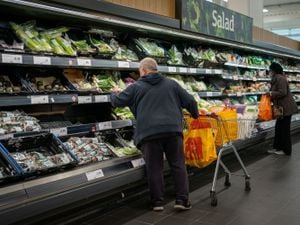Rural residents stuck in digital slow lane, warns Lib Dem leadership contender
Research by Layla Moran reveals constituencies in Scotland, Wales and the south west of England suffer with slowest broadband.

Lib Dem leadership hopeful Layla Moran is calling for extra ultra-fast broadband support in rural areas of the UK, warning that hundreds of thousands of people are stuck in the digital slow lane.
House of Commons Library research has revealed that Scotland, Wales and the south west of England suffer with the highest number of constituencies marred by poor connection speeds.
North Cornwall has the worst average broadband speed at 29.1Mbps, followed by St Ives, and Camborne and Redruth.
Overall, 21 of the top 100 slowest connections across the UK are in Scotland, while 20 are in Wales and 18 are in the South West.
Meanwhile, only five are in the South East and one in London.
Ms Moran wants the Government to prioritise improving broadband in the UK’s hardest-to-reach communities, offering increased subsidies for ultra-fast broadband in rural areas and for business rates relief on broadband infrastructure to be extended by another 15 years.
“Despite repeated Government promises, thousands of people across the UK are being left in the digital slow lane,” the MP for Oxford West and Abingdon said.
“Urgent investment is needed in boosting internet speeds in rural areas, alongside extended tax relief on new broadband infrastructure to ensure no household is left behind.
“People in rural areas are being let down by Governments in both Westminster and Holyrood who take their votes for granted.
“Under my leadership, the Liberal Democrats will champion rural communities in every corner of the UK, from the South West to Scotland.”
In March, Chancellor Rishi Sunak announced a £5 billion investment to introduce gigabit-capable broadband across the whole of the UK, following an election pledge by the Conservatives to bring full-fibre and gigabit-capable broadband to every home and business in Britain by 2025.





